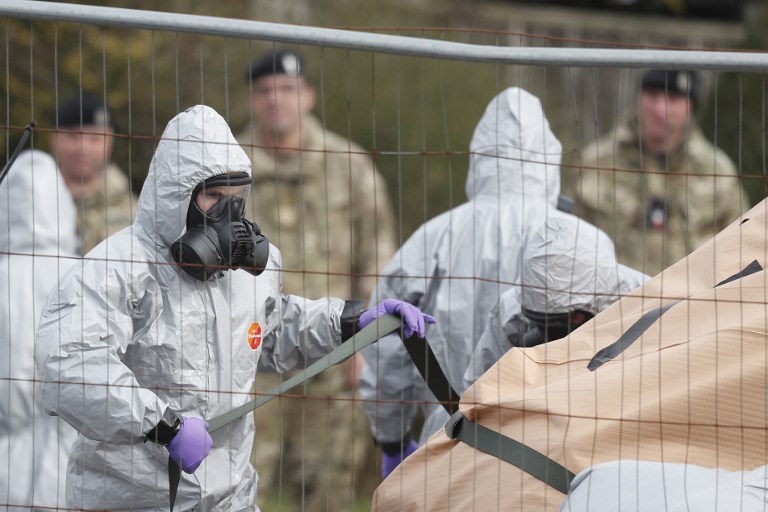

CANADA (AFP) — Foreign Ministers of the Group of Seven industrialized nations on Monday called on Russia to come clean about a nerve agent attack on a former spy in Britain, calling it “a threat to us all.”
“We call on Russia to urgently address all questions related to the incident in Salisbury,” they said in a joint statement.
The G7 nations urged Russia to provide a “full and complete disclosure of its previously undeclared Novichok program to the OPCW in line with its international obligations.”
Novichok is a group of deadly chemical compounds reportedly developed by the Soviet government in the 1970s and 80s.
The G7 statement comes after Western nations expelled more than 150 Russian diplomats in a coordinated action against Moscow in support of Britain, and Russia retaliated with similar moves.
Britain has blamed Moscow for the assassination attempt on former Russian spy Sergei Skripal and his daughter in the English town of Salisbury in March.
After conducting its own tests, the Organisation for the Prohibition of Chemical Weapons (OPCW) on Thursday confirmed Britain’s findings about the substance used in the attack.
The foreign ministers of Britain, Canada, France, Germany, Italy, Japan and the United States, as well as the European Union, said they “are united in condemning, in the strongest possible terms” the attack in Salisbury.
They also said they agree with Britain’s assessment “that it is highly likely that the Russian Federation was responsible for the attack and that there is no plausible alternative explanation.”
“Any use of chemical weapons by a state party, under any circumstances, is a clear breach of international law and a violation of the Chemical Weapons Convention,” they said.
“It is a threat to us all. Their use is abhorrent, completely unacceptable and must be systematically and rigorously condemned.”
© Agence France-Presse
